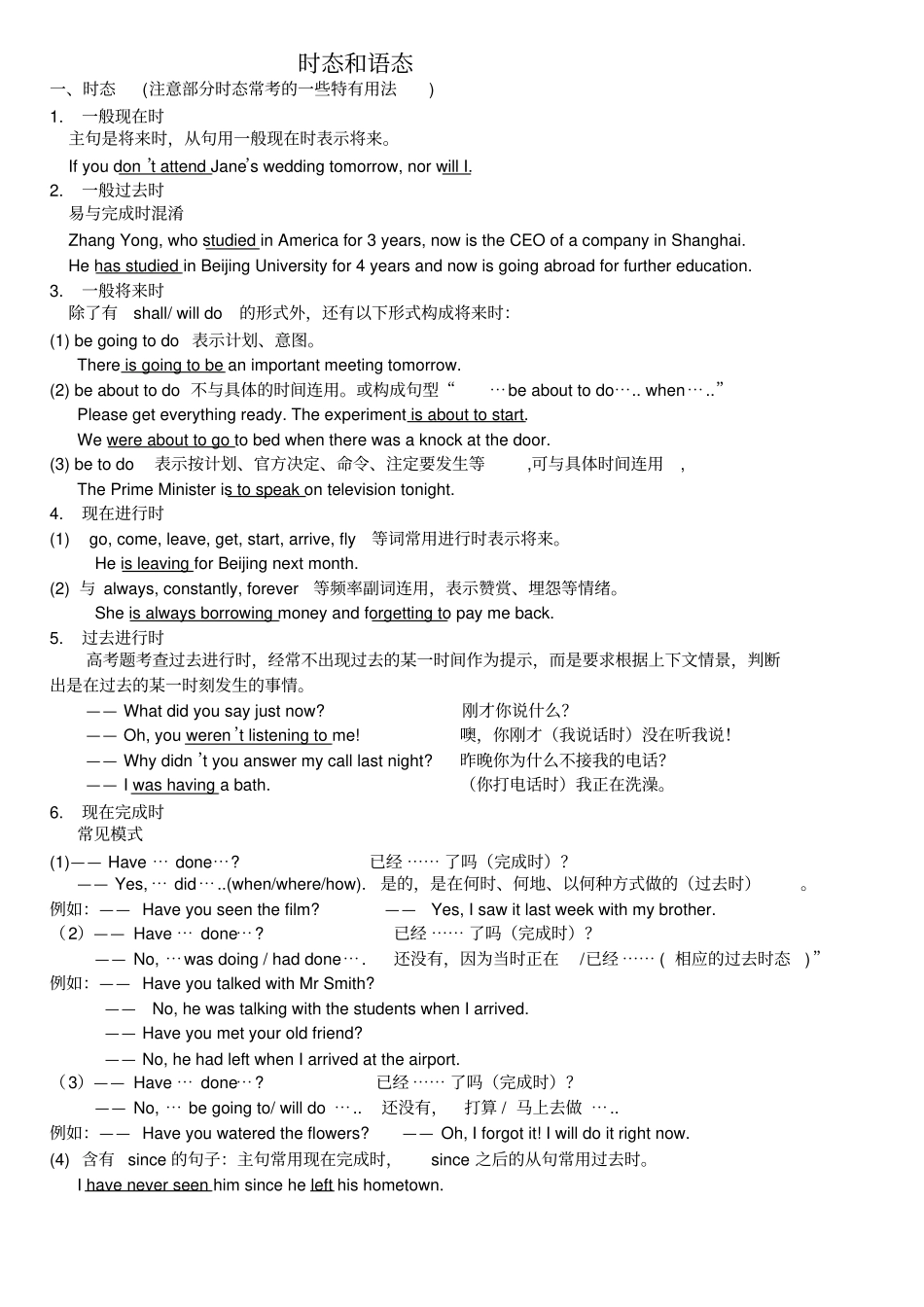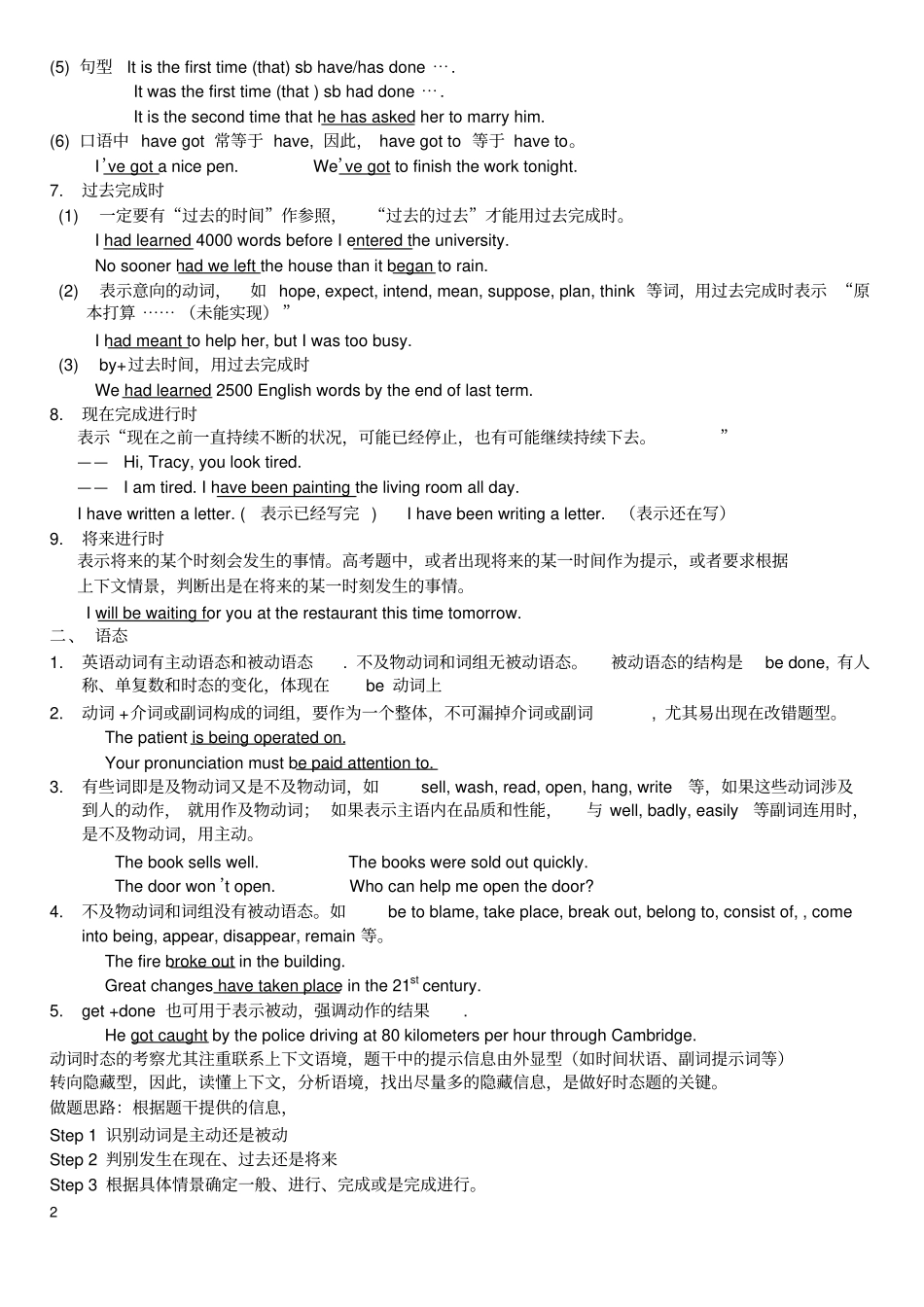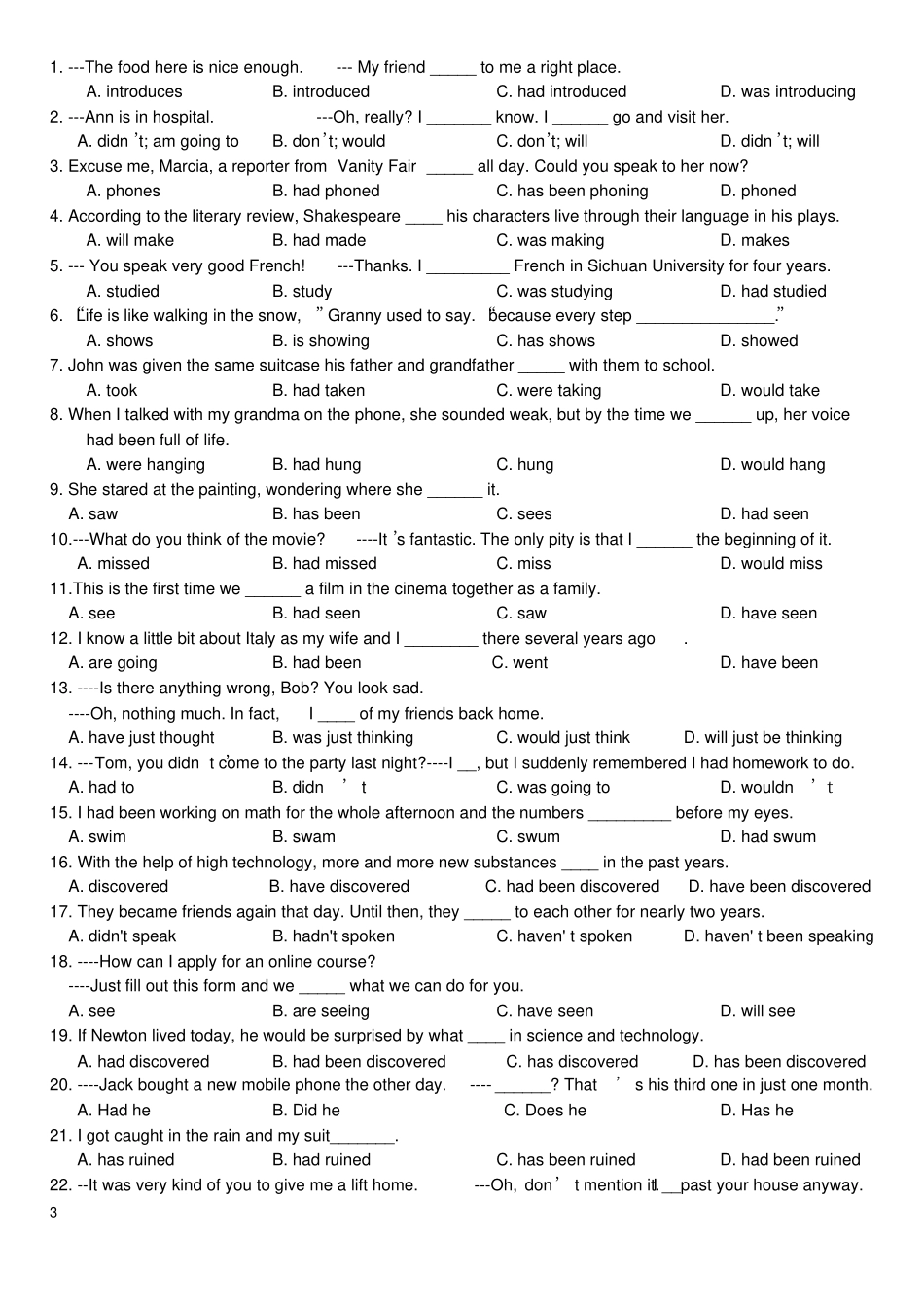时态和语态一、时态(注意部分时态常考的一些特有用法) 1.一般现在时主句是将来时,从句用一般现在时表示将来。If you don ’t attend Jane’s wedding tomorrow, nor will I. 2.一般过去时易与完成时混淆Zhang Yong, who studied in America for 3 years, now is the CEO of a company in Shanghai. He has studied in Beijing University for 4 years and now is going abroad for further education. 3.一般将来时除了有shall/ will do 的形式外,还有以下形式构成将来时:(1) be going to do 表示计划、意图。There is going to be an important meeting tomorrow. (2) be about to do 不与具体的时间连用。或构成句型“⋯be about to do⋯.. when⋯..”Please get everything ready. The experiment is about to start. We were about to go to bed when there was a knock at the door. (3) be to do 表示按计划、官方决定、命令、注定要发生等,可与具体时间连用, The Prime Minister is to speak on television tonight. 4.现在进行时(1) go, come, leave, get, start, arrive, fly 等词常用进行时表示将来。He is leaving for Beijing next month. (2) 与 always, constantly, forever 等频率副词连用,表示赞赏、埋怨等情绪。She is always borrowing money and forgetting to pay me back. 5.过去进行时高考题考查过去进行时,经常不出现过去的某一时间作为提示,而是要求根据上下文情景,判断出是在过去的某一时刻发生的事情。—— What did you say just now? 刚才你说什么?—— Oh, you weren ’t listening to me! 噢,你刚才(我说话时)没在听我说!—— Why didn ’t you answer my call last night? 昨晚你为什么不接我的电话?—— I was having a bath. (你打电话时)我正在洗澡。6.现在完成时常见模式(1)—— Have ⋯ done⋯? 已经 ⋯⋯ 了吗(完成时)?—— Yes, ⋯ did⋯..(when/where/how). 是的,是在何时、何地、以何种方式做的(过去时)。例如:—— Have you seen the film? ——Yes, I saw it last week with my brother. (2)—— Have ⋯ done⋯? 已经 ⋯⋯ 了吗(完成时)?—— No, ⋯w...


